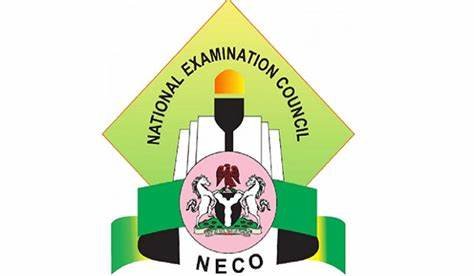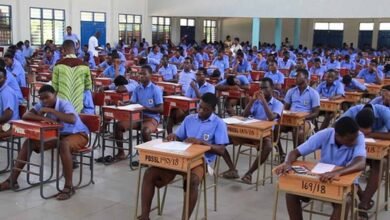NECO 2025 SSCE: An Opportunity to Restore Confidence in Nigeria’s National Examinations System

Overview
The National Examinations Council (NECO) officially commenced the 2025 Senior Secondary School Certificate Examination (SSCE) on Monday, June 16. As a key examination body in Nigeria, NECO shoulders the critical responsibility of assessing academic readiness and progression for secondary school students. These exams play a defining role in determining students’ eligibility for entry into tertiary institutions, making them a pivotal part of Nigeria’s educational journey.
Following the recently concluded 2025 West African Senior School Certificate Examination (WASSCE), administered by the West African Examinations Council (WAEC), public concern about the administration of national exams has grown significantly. Numerous reports from the WAEC exam cycle revealed that students in several parts of the country were forced to write core papers like English Language well into the night, with some sessions reportedly commencing as late as 9:00 p.m. These delays triggered widespread anxiety about the physical safety, emotional well-being, and academic performance of the students involved.
The public outcry was immediate and justified. Such experiences call into question the systems and safeguards in place to protect students during one of the most critical moments of their academic journey. They also underscore the fragility of the infrastructure supporting Nigeria’s public examinations.
In light of this, many Nigerians are now looking to NECO to restore confidence by delivering an orderly, timely, student-friendly, and legally compliant examination cycle. The NECO SSCE 2025 represents more than just a test of students—it is a test of leadership, planning, coordination, and institutional credibility.
NECO 2025 Examination Guidelines
NECO has released a comprehensive set of rules to guide the conduct of the exams. Some of the most important include:
a. If the time on the question paper differs from the official timetable, candidates must follow the time on the question paper.
b. All candidates must bring their NECO photo card to the exam centre each day. Without this, entry into the exam hall will not be permitted.
c. In cases where equipment for practical subjects is limited, students may be divided into groups and scheduled for different times.
d. For certain technical and creative subjects, question papers must be issued in advance:
- Visual Arts (Creative Design): at least one week before.
- -Welding & Fabrication, Engineering Craft Practice: at least three weeks before.
- -Dyeing & Bleaching, Photography, Painting & Decoration, Leather Goods, Printing Craft: at least two weeks before.
e. Students who miss the practical component (Paper I) of a subject will not receive results for that subject.
f. Scientific calculators are allowed, but programmable calculators and electronic devices are prohibited.
g. The following are banned in the exam hall: mobile phones, smartwatches, iPads, programmable calculators, electronic pens or glasses.
h. Blind and albino candidates are allowed 30 extra minutes per paper and must use special NECO-issued braille sheets.
i. Nigerian language subjects will include literature components.
j. For subjects with practical components such as French, Music, Auto Mechanics, and Physical Education, candidates must confirm venues and arrangements ahead of time.
Lessons from the WAEC Experience: A Word of Caution
The irregularities experienced during the 2025 WAEC exams must serve as a national warning. Students deserve more than just the opportunity to write an exam, they deserve the assurance that the systems supporting them are reliable, safe, and efficient.
Late-night exams not only compromise student safety but introduce stress and fatigue that negatively affect performance. Nigeria cannot afford to normalize such chaos, especially in an era when learning conditions are already under strain due to economic hardship, insecurity, and systemic educational challenges.
This is why NECO’s role at this moment is so critical. The body has a unique opportunity to demonstrate that national examinations can still be conducted with precision, fairness, and care.
Recommendations
To NECO and Examination Authorities:
- Ensure tight logistical coordination to avoid delivery delays, last-minute rescheduling, or night-time sessions. The integrity of the exam process depends on predictability and timeliness.
- Work closely with local education authorities and security agencies to ensure all centres are adequately staffed, monitored, and secure.
- Provide rapid-response communication channels for principals and centre supervisors to report and resolve issues in real time.
- Strengthen contingency plans for weather disruptions, technical faults, or security risks.
- Actively monitor implementation of exam guidelines and issue public updates to foster transparency and build public trust.
To Parents and Guardians:
- Ensure your child understands the exam timetable, guidelines, and conduct rules. Regular reminders and calendar alerts can help with organization and mental readiness.
- Prioritize early arrival at exam centres, especially for students writing papers in unfamiliar locations or cities.
- Monitor your child’s emotional and physical well-being. This is a period of intense pressure. Nutrition, rest, and reassurance are key.
- Avoid aiding or abetting exam malpractice. The long-term cost of a compromised result far outweighs any short-term gain.
To Students:
- Take ownership of your preparation. Begin revising early and focus on both theory and practice, especially in core subjects.
- Avoid any temptation to use prohibited devices. Focus on ethical performance; malpractice can result in cancellation of results or long-term disciplinary action.
- Report any irregularities you observe to trusted adults or teachers.
- Remain calm and focused throughout the exam cycle. Panic, distractions, and fatigue can impact even well-prepared candidates.
Conclusion
The 2025 NECO SSCE presents a critical opportunity for all stakeholders—examination bodies, schools, parents, and students to correct course and rebuild trust in Nigeria’s national examination system. The issues experienced during the WAEC cycle must not be repeated. Rather, they should serve as a lesson and a catalyst for reform.
If NECO is able to successfully deliver a well-coordinated, student-centered, and transparent exam cycle, it would not only redeem public faith in high-stakes assessments but also affirm the credibility of national institutions charged with shaping Nigeria’s future.
Education, after all, is a national investment. And how we treat our students during these crucial periods says much about the kind of society we aspire to become. Let this be the year that excellence, not error, defines the Nigerian exam experience.





